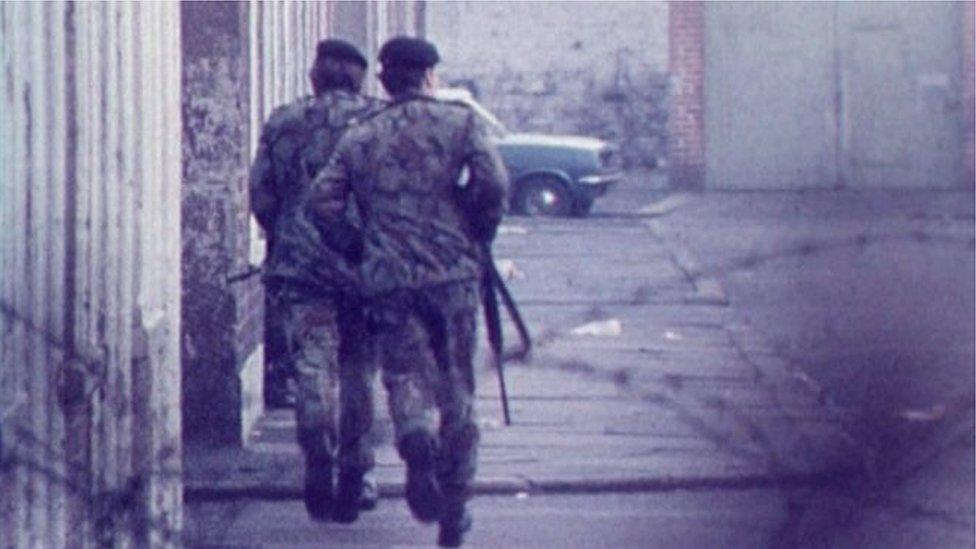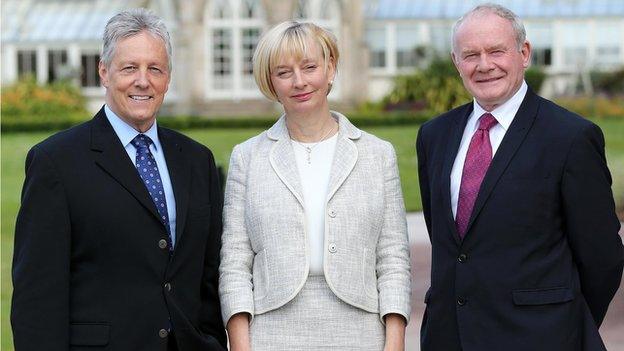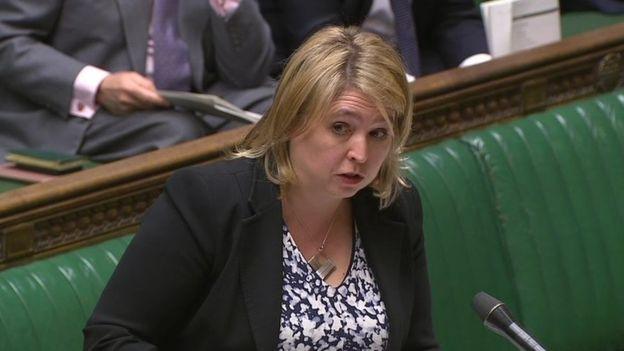Victims commissioner: Amnesties should be off the table
- Published

Victims' commissioner Judith Thompson
The NI victims' commissioner has said the government should rule out amnesties or statutes of limitations on legacy issues.
Judith Thompson said: "If an amnesty was granted for one set of actors, it would then be granted to everybody".
A new report from the commissioner makes a number of recommendations on dealing with legacy issues.
Included in these, is a call for progress on pensions for victims injured during the Troubles.
Mrs Thompson has held her position since 2015 and is responsible for promoting the interests of victims and survivors.
Granted to everybody
"It is critically important that the way we move forward is lawful, and it must be fit to deliver for those people who have been harmed," she told BBC News NI.
Mrs Thompson noted the families of 300 soldiers were currently awaiting investigations, "as well as thousands of other people".
If an amnesty was granted, she said: "None of those families which are waiting for investigations would see any progress."
"That's not lawful and it's not right."

What is recommended?
Monday's report includes the following recommendations:
An Historical Investigations Unit which would have a caseload of about 1,700 Troubles-related deaths
An Independent Commission on Information Retrieval which would only look for information if asked to do so by families
An oral history archive which would collect recorded memories and stories about the Troubles in one place
An implementation and reconciliation group with 11 members representing the UK and Irish governments, along with the five biggest Northern Irish political parties
Pension payments to those severely injured
Funding to develop trauma services in Northern Ireland
The legal right to have an inquest heard in coroners courts
A recommendation against amnesties and a statute of limitations

'Derisory at the time'
Mrs Thompson said pensions for the injured - which had previously been dealt with as a devolved issue - must now be put before Westminster as a matter of urgency.
"It think it is outrageous it has taken this long for a pension to be agreed, and in fact it still isn't agreed," she said.
"So we have four pieces of draft legislation and this policy advice advocates very strongly for them being progressed."
She said previous payments to victims had been "derisory at the time".

The families of 300 soldiers are currently awaiting investigations
Funding
Mrs Thompson said it was "widely acknowledged" the planned £150m set aside for the institutions carrying out the inquiry into the Troubles "just won't cut it".
Referring to a report from the Criminal Justice Inspectorate produced in 2013 which calculated the annual cost of dealing with Troubles issues at £20m - she said the cost over the past 20 years worked out at more than half a billion pounds.
She said this spend had provided "no lasting resolutions".
Access to investigation
The victims' commissioner also emphasised the right of those who were injured during the Troubles outside of Northern Ireland to have their cases investigated.
Mrs Thompson called for a "very coordinated approach between the British and Irish governments".
"There are people who lost people they loved during the Troubles who live in Northern Ireland and who live outside Northern Ireland. Some of whom live in the Republic," she said.
"Those people should have access to an investigation in the same way those in the north do."
A public consultation process on the legacy of the Troubles was carried out last year by the government, lasting from May and September.
- Published23 July 2015

- Published11 May 2018
